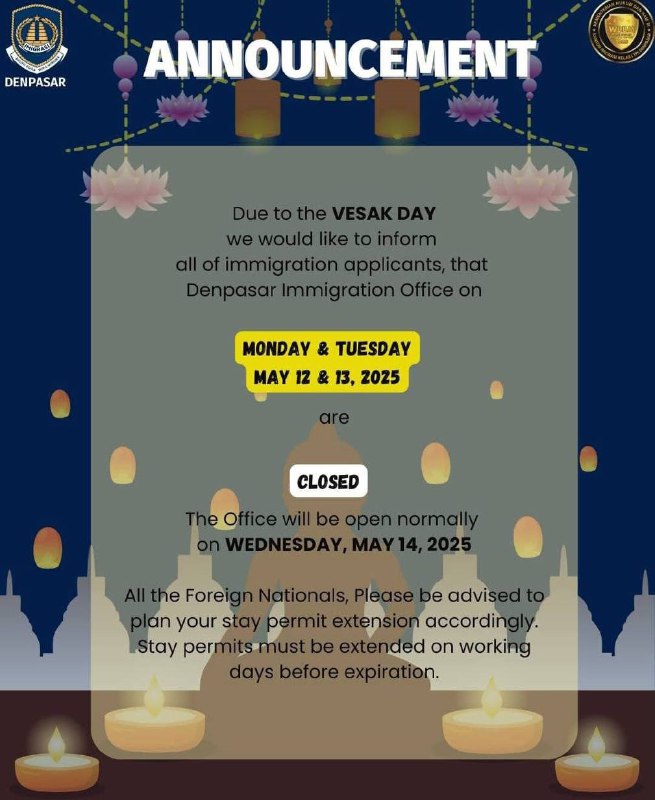NPWP and tax residency: key provisions
Foreign citizens living and working in Indonesia face special rules and statuses governing their taxation. Indonesia’s tax legislation provides for two statuses for foreign citizens: SPLN and SPDN.
The status of a foreign tax subject or SPLN (Subjek Pajak Luar Negeri) is assigned to those who stay in the camp for less than 183 days during the year. If a foreigner’s stay exceeds this period, he receives the status of a tax resident (SPDN — Subjek Pajak Dalam Negeri).
A tax resident is required to pay income tax (PPh) on income earned both in Indonesia and abroad. Non-taxable income is listed in paragraph 3 of Article 4 of Law No. 36 OF 2008. To prevent double taxation, Indonesia has concluded agreements with 71 countries.
The Taxpayer Identification Number (NPWP) is a document issued by the General Tax Administration (DJP) of the Republic of Indonesia. NPWP is mandatory for all income earners in the country. This is indicated in Resolution No. 35/RMK.03/2019). Violation of this requirement entails a fine in the amount of two to four times the amount of unpaid tax. In case of repeated violation, imprisonment for a period of 6 months to 6 years may be imposed (Article 39 of Law No. 28 of 2007). A foreign citizen cannot obtain an NPWP without a KITAS/KITAP visa. Persons without NPWP are not recognized as tax residents of Indonesia.
The calculation and payment of income tax (PPh) is regulated by Law No. 36 of 2008. For taxpayers without NPWP, the amount of tax is increased by 20% (clause 5a of Article 21). Indonesian tax residents have different income tax rates (from 5% to 35%), depending on the type of income (PPh 4(2), PPh 21 and others).
The 20% tax rate for non-residents can be reduced if the foreign citizen has already paid tax on this income in his country of tax residence and there is an agreement on the avoidance of double taxation.
The tax rate on dividend payment depends on the recipient’s status: for legal entities – 15%, for individuals with NPWP – 10%, for individuals without NPWP – 20%.
Payment of personal income tax is made by both the source of income (in this case, the company) and the individual himself by submitting annual tax reports. The deadline for submitting the annual report is March 31 of the year following the report.
Example 1: A taxpayer with NPWP received income from a company. This company is required to withhold tax when paying income. In addition, the taxpayer himself submits a personal annual report, and if the company has not withheld the tax, then he is obliged to pay it himself.
Example 2: If a payment from another individual is just a transfer and not income, then no tax is required.
Example 3: The investor received dividends from the company in which he invested. When paying dividends, the company is obliged to withhold tax: 10% for residents and 20% for non-residents. If the investor is a resident and the company has not withheld tax, he is obliged to file annual tax reports and pay the tax himself.
In case of receiving dividends from a foreign company, a resident with NPWP may decide to pay tax in his country. However, failure to file a tax return is less risky, since the tax service does not actively monitor the payment of taxes by foreign citizens, due to difficulties in monitoring tax obligations in other countries.

Preparation of a personal tax report for 2023, taking into account income
To prepare a personal tax report for 2023, it is recommended to contact the organization “LegalIndonesia”. They will be able to provide the necessary advice and assistance in filling out the appropriate fields.
The following are excluded from the objects of taxation:
Assistance and donations (including zakat – donations obligatory for Muslims) and religious contributions received from voluntary aid agencies or charitable organizations established or authorized by the government;
Donated assets received by blood relatives in a direct line of the same degree of origin, as well as from religious organizations, educational and public organizations, including foundations, cooperatives or individuals engaged in micro and small businesses. The provisions of which are regulated or based on the decrees of the Minister of Finance, if there is no connection between the parties concerned with business, employment, property or control;
Inheritance;
Assets, including cash deposits, received by the organization as a substitute for shares or a substitute for equity participation;
Compensation in connection with works and services received or provided in kind, as well as favors received from individuals or the Government. However, this may be taxed if such compensation is provided by tax-exempt organizations or tax residents who pay the final tax or use special calculation rules as defined in Article 15.
Payments by insurance companies to individuals for medical insurance, accident insurance, life insurance, donations and student scholarships.
Dividends or part of profits received or accrued by limited liability companies as domestic taxpayers, cooperatives, state-owned or regional enterprises from capital investments in commercial enterprises established and registered in Indonesia with the following conditions:
7.1 Dividends come from reserves of retained earnings
7.2 For limited liability companies, state-owned companies and regional property companies receiving dividends, it is necessary that their share of participation in the company be at least 25 percent of the total amount of paid-up capital.
Contributions received or earned by pension funds, the creation of which has been approved by the Minister of Finance, regardless of whether they are paid by employers or employees.
Income from capital invested by pension funds in certain areas approved by the order of the Minister of Finance;
The share of profit received or earned by the participants of a limited liability company whose capital is not divided into shares
Income received by a venture capital company in the form of a share of profits from a business partner organization established and carrying out business or activities in Indonesia, if the organization is a business partner:
11.1. Is a micro-small, medium-sized company or a company that operates in business sectors regulated or based on the Regulations of the Minister of Finance;
11.2. If its shares are not traded on the Indonesian Stock Exchange.
Scholarships that meet certain requirements, are subject to additional regulations or are based on them by resolutions of the Minister of Finance;
Excess balance received or acquired by non-profit organizations or institutions in the field of education, research and development, which must be reinvested. This should happen within a maximum period of 4 years from the date of receipt of the excess balance. The provisions on reinvestment are additionally regulated or based on a decree of the Minister of Finance.
Assistance or compensation paid by the Social Security Management Agency to certain taxpayers.














